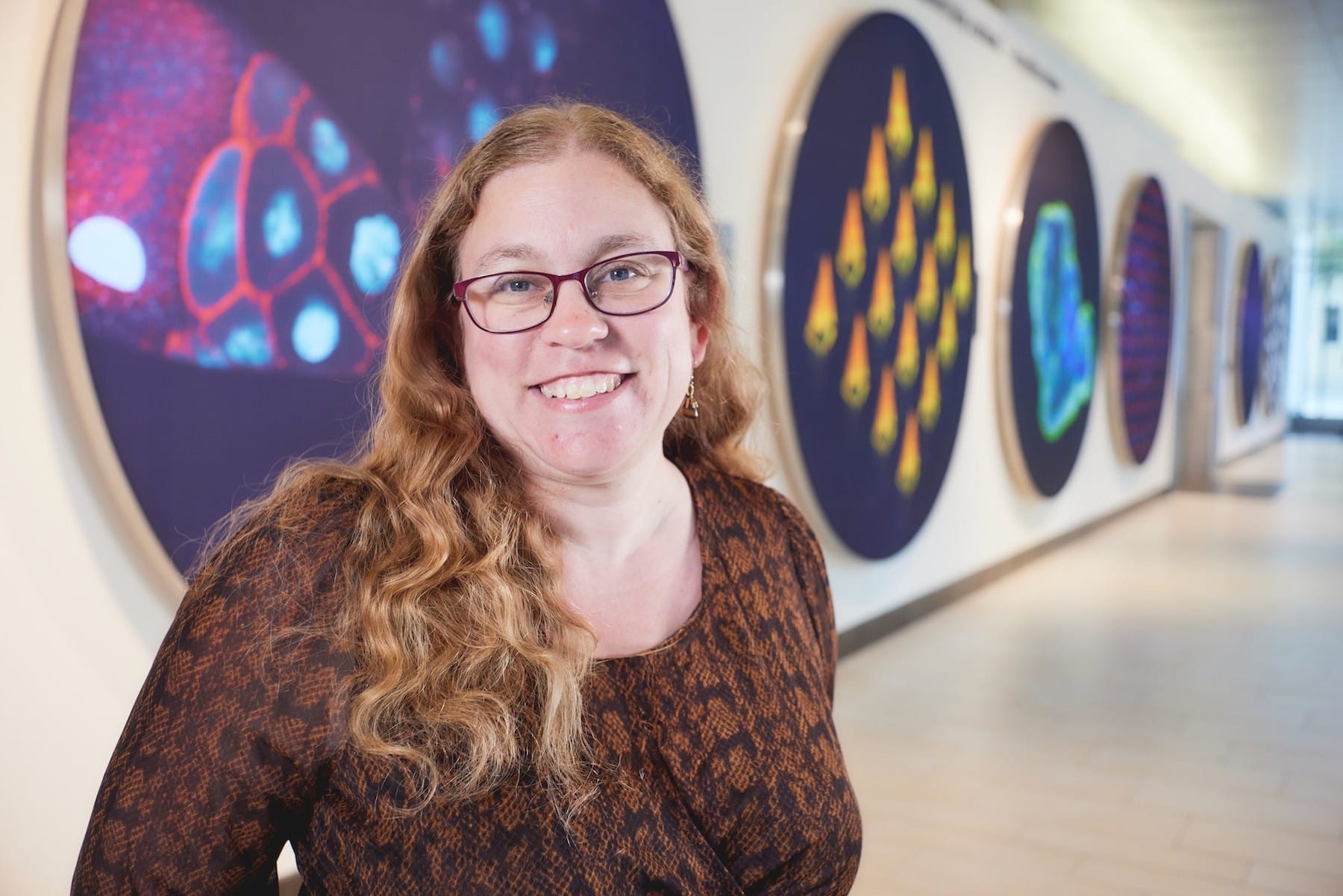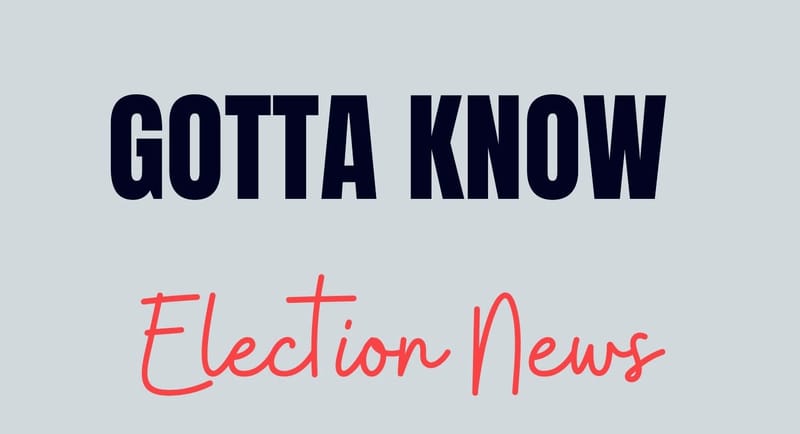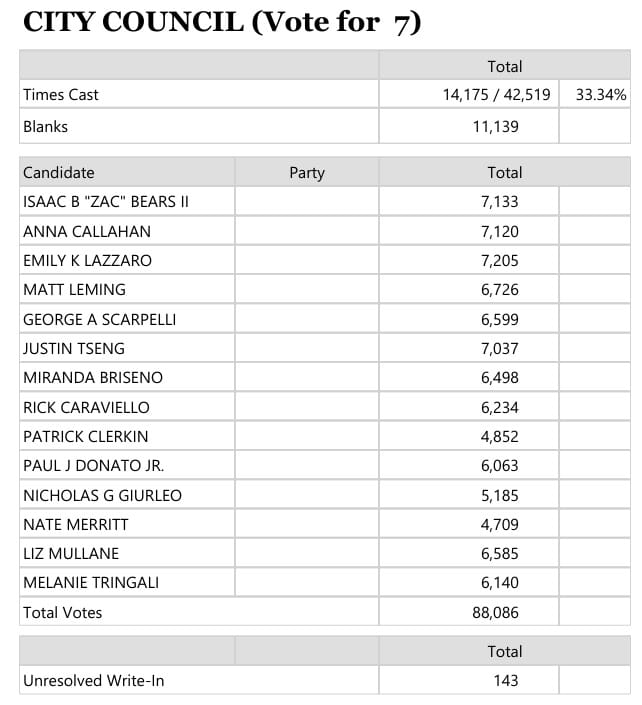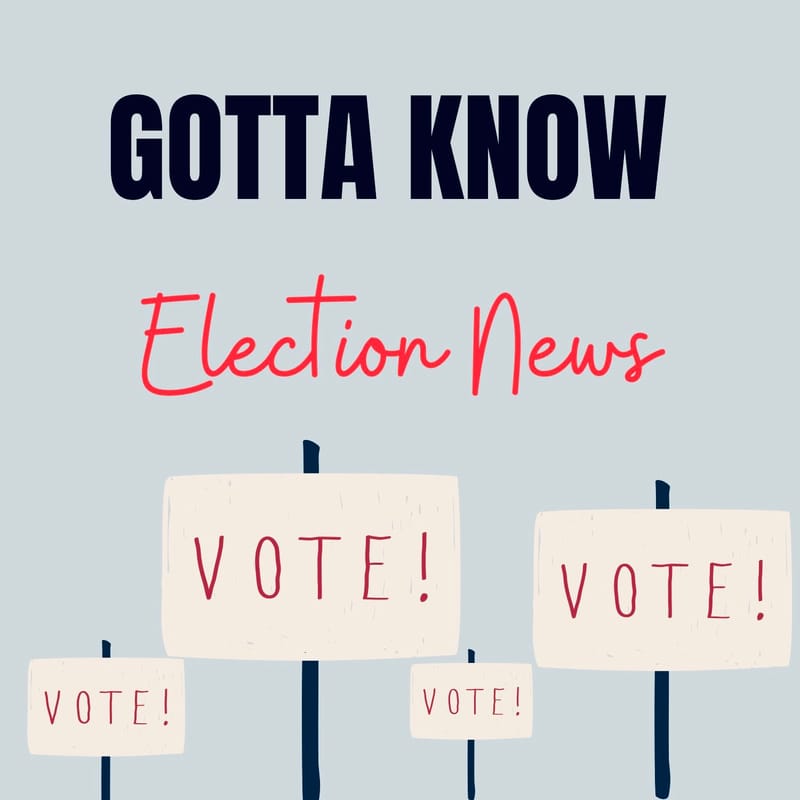Meet School Committee candidate Erika Reinfeld
Incumbent

How many years have you lived in Medford?
Twenty-one
Please describe your professional background and education.
I am a STEM educator and public outreach professional, specializing in interdisciplinary approaches to education, and science communication. A proud public school graduate, I also hold a bachelor’s degree in Astronomy and Theatre from Wellesley College, and a master’s in museum education from the University of Leicester. I’ve taught astronomy, physics, biology, engineering, visual and oral communication, and self-defense to students of many ages, most often middle and high school.
What, if any, city positions (appointed or elected) have you held, and for how long?
I’ve been a member of the Medford School Committee since January 2024, and a volunteer in Medford schools since 2016, including an appointment to the district’s 2023 health curriculum review committee and spearheading Roberts Elementary School’s Art and STEM Nights’ community engagement since fall 2019.
As a school committee member, I chair the Curriculum, Instruction, Assessment, & Accountability subcommittee and am also a member of the subcommittees for Family Engagement & Communication, Strategic & Capital Planning, and Diversity, Equity, & Inclusion. Earlier this year, I served on the hiring committee for our new Assistant Superintendent for Academics and Instruction.
What volunteer roles have you participated in that you feel have made a difference in Medford?
I am really proud of the work I did expanding STEM and Art Nights at the Roberts to include collaboration with local scientists, artists, and community organizations, and to secure funds for equipment and enrichment activities. More recently, I worked with City Councilor Emily Lazzaro to revive the Citywide Elementary Alliance and re-ground that work in an equity-focused approach. I am currently leading a cohort of Medford caregivers and educators to launch a “friends of the arts” organization for Medford Public Schools. Our plan is to file for non-profit status this fall.
Beyond that, I chip in where I can with PTO events, Safe Routes to Schools, and my children’s scouting, sports, and music activities. Being on the school committee also allows me to participate in community events across the city and in our schools, which is both a great way to know what’s happening around town and to have an impact on individual students’ and teachers’ daily experiences.
Why should residents vote for you?
My experience as a parent, program manager, and STEM educator brings a non-traditional, cross-disciplinary perspective to the committee, but the main reason is because I listen deeply to all sides of the conversation, and take a truly collaborative approach to problem-solving. I’m responsive to community concerns and proactively make information available to residents through things like my social media meeting recaps and regular office hours. I’m willing to put my values on display in meetings and advocate for people whose personal stories need to play a bigger role in public decision-making. At the same time, I am focused on identifying trends and patterns to inform systemic change, offering a thoughtful, well-informed approach to both deliberation and action. Basically, I do my homework and I care deeply about what happens in our schools.
Tell us …
Why are you running or running again for School Committee, what changes do you believe you can facilitate?
I’m running for re-election because there’s more work to be done! Since taking office in 2024 I’ve advanced resolutions to address longstanding challenges like overcrowding in our elementary schools, afterschool care, access to the arts and other electives, capital planning, preparations for a new high school, and improved communication between schools and families. I’ve advocated for marginalized students, curriculum review, community partnerships, updated health education, more flexibility in graduation requirements, and preparedness in our response to education policy changes at the federal level. There’s a lot to do to follow through on those initiatives and make sure students receive the full benefit of what we’ve begun. The relationships I’ve built and my collaborative approach to problem solving are key ingredients for doing that work.
I’m also running because even with those changes, there are still students who are slipping through the cracks. Too many of my own children’s classmates have chosen to leave Medford Public Schools—many of whose parents work in public schools themselves—so we need to understand both the specific actions and the systemic policy gaps that led to those departures. I know I can bring those perspectives to the table and ensure a diverse representation of student experience to inform decision-making.
What do you see as the top issue with the School District?
Removing the ever-looming uncertainty about changes to federal education policy—the response to which must always be rooted in a local district’s values—I think the ability to personalize education for every student is a huge priority. We’ve made a lot of progress developing district-wide consistency these last few years, and I think that’s hugely important, but we’re also looking at new leadership, new funding, new contracts, a new capital plan, new curricula, new schedules, new partnerships, and we owe it to our students (and staff and families) to make sure the positive outcomes are delivered equitably across our community. My approach to this is always a combination of qualitative and quantitative data—making sure district-wide assessments and training are balanced with on-the-ground observations and follow-through. If we can find that balance, we can be much more confident that we are meeting every student’s needs.
With potentially deep cuts in federal funding and a local budget stretched thin –what are your budgeting priorities and how do you propose to make them happen?
Such an important question! I am very grateful for last year’s overrides for the cushion they gave us in our ability to fix longstanding problems and make room for new initiatives, as well as for funding from the state to ensure that local districts can provide meals, special education services, language learning, and more to our students, but I don’t take any of it for granted. My overarching budgeting priority is to maintain the work we’ve done to clarify the budgeting process and track how funds are actually being spent and apply that same clarity to our revolving accounts (that’s spending accounts outside the general budget that are funded by fees and tuition rather than taxes and grants). But on the ground level, it’s about following through and assessing the impact of our recent investments in literacy, math support, increased learning time, new curricula and partnerships, capital planning, and infrastructure, and about strategically choosing our new investments based on student needs. Personally, I’d like to see a broader range of academic options for younger grades—to accommodate diverse learning styles and speeds—and continued expansion of arts and STEM electives, available to all students, but never at the expense of those individual support services currently provided by the state and federal government. Ultimately, I think our budgets need clear goals that they are supporting and enough flexibility to respond to emerging needs—as well as leadership that truly understands what those needs are. My role in that process is to be an active participant, to communicate clearly with the families and the broader public about what and why decisions are being made, and to advocate for high-value collaboration within the district and with external partners.
What role should the community play in supporting the education of children?
Community support for education is essential on both a personal and institutional level. How adults show up for children and how they treat their neighbors is directly connected to a child’s sense of self-worth and their ability to see how they fit into the world. And, at the same time, partnerships between schools and community organizations have the potential to deliver much more than just expanded academic opportunities for students.
We have so many resources in and just beyond Medford—world class universities, thriving arts and STEM ecosystems, local businesses, history on every corner, public health and social service professionals at City Hall, the new youth employment program my colleague Aaron Olapade helped bring to Medford earlier this year, and of course every Medford resident who donates their personal time to supporting our students—and such a rich diversity of human experiences and perspectives for our students to learn from. Whether it’s providing essential services families need or creating opportunities for students to pursue their personal interests and discover new talents, I honestly don’t think we *can* educate children without the broader community. Success in education is about knowledge, skills, and attitudes—none of which are shaped in a vacuum.
What book is currently on your nightstand? (just for fun)
Oh gosh. My nightstand is actually covered in school committee agenda folders and chargers. But underneath the papers are "The Puzzler" by A.J. Night, which I’ve been partway through for many months now, "How the Word is Passed" by Clint Smith, which I’m reading with my book group at work, and "What Time is Noon?" by Chip Leighton, which I really need to return to the library so that other parents and caregivers can enjoy the hilarious yet insightful snapshots of texting with teens.




